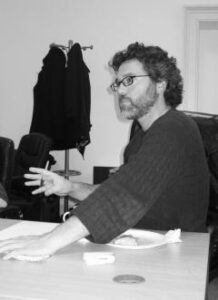G. Lacaille: The Democratic Republic Of Congo
 Integrity recently welcomed Guillaume Lacaille (pictured), who presented the current context in the Democratic Republic of Congo (DRC) to Integrity. Guillaume is a consultant with more than twelve years of experience in African post-conflict settings. Guillaume outlined the history of the DRC and considered scenarios for the future.
Integrity recently welcomed Guillaume Lacaille (pictured), who presented the current context in the Democratic Republic of Congo (DRC) to Integrity. Guillaume is a consultant with more than twelve years of experience in African post-conflict settings. Guillaume outlined the history of the DRC and considered scenarios for the future.
Guillaume explained the significant traumas that the population of the DRC has experienced; including the assassination of Prime Minister Patrice Lumumba, the Mobutu dictatorship and the armed conflict in eastern DRC involving Rwanda and Uganda, which was later called the ‘African World War’. As a response to these events the international community developed a more robust approach to UN peacekeeping with its largest deployment of troops to eastern DRC.
Guillaume analysed the current structures of interests, and the balance of power between the various internal, regional and international stakeholders and actors. Focusing on the recent events in the Kivu region of the eastern DRC he explained the evolution of various rebel groups operating in this area, and unpacked the role played by Rwanda in supporting some of these groups, as revealed in official UN expert panel reports.
After a more robust engagement by UN peacekeeping forces since February 2013, the rebel group M23 was officially declared as defeated by the government of DRC. Guillaume outlined possible scenarios for the country’s future development. Firstly, he sees the defeat of M23 as an opportunity for a new chapter of positive development in DRC. Secondly, the end of the influence could lead to changes in the power dynamics among the different communities living in North Kivu; which could lead to later ethnic tensions if no reconciliation and governance reforms are not rapidly implemented. Thirdly Guillaume highlighted the potential impact of external actors – particularly Rwanda – in shaping the future in DRC through their reactions to the defeat of M23.
